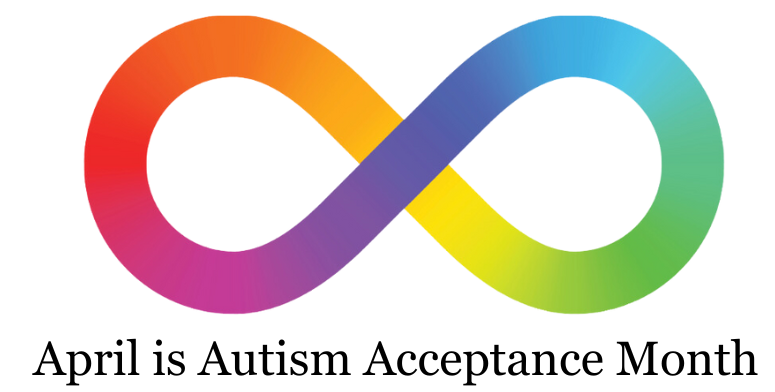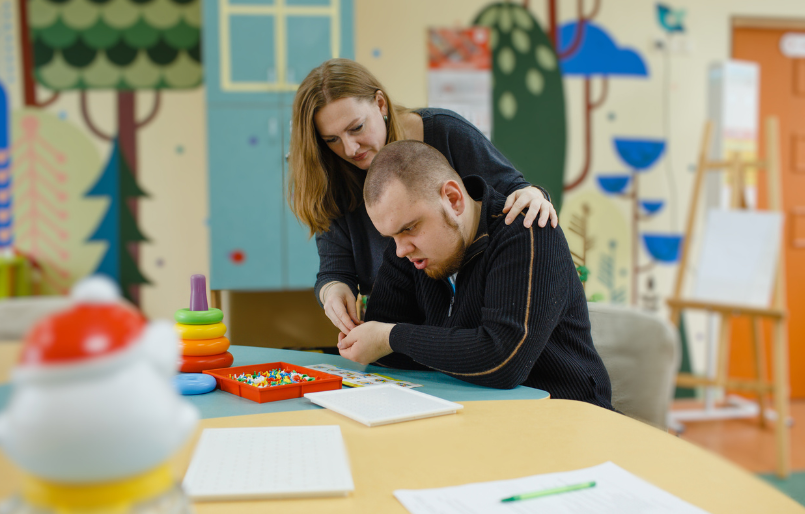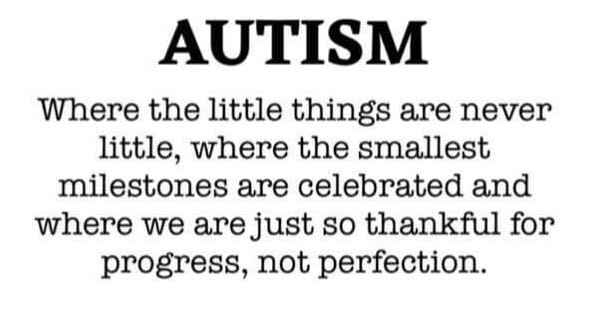April is Autism Awareness Month. We asked Lyn Goodwin, a mum of a severely autistic young man, to share her experience and advice on how parents of children with special needs can best support their children.
By Lyn Goodwin
As parents of children with special education needs and disabilities (SEND), we can be the best advocate for our children by arming ourselves with the right information to make an informed decision about their well-being. By doing so, we will be confident that the decisions we make are in their best interest and that we can help them to reach their fullest potential.

I’m a mother of a 23-year-old severely autistic son and a 21-year-old daughter who was recently diagnosed with ADHD. The hardest time of my life as a mother was when I found out that my son was autistic. Perhaps those of you who have special children can relate to how I felt at that time.
Getting a diagnosis
It was 2001 when at 18 months old, my son was diagnosed with nonverbal and mild autism. I was told that it was early days so he will either improve or regress. I didn’t know much about autism at that time and I was referred to my local branch of the National Autistic Society (NAS) to get support and to know more about autism. The NAS connected me to all the support my son needed.
Fortunately, he received excellent early years support until he was eight years old. He was toilet-trained, he could feed himself and he could communicate using picture exchange communication system (PECS). But towards the end of his primary education, I began to find it hard to get the appropriate support for him.

Not until my son’s behaviour regressed. As he left primary school, he was diagnosed with severe challenging behaviour. To those who are unfamiliar with autism, this type of behaviour is not tantrum but an autistic child’s response to being overwhelmed or overstimulated. Seeing my son being let down by the school and my local authority and him missing out on opportunities to improve and progress has upset me on many occasions.
For example, my son did not receive enough speech and language therapy (SALT) and his school did not provide him with one-to-one support. Because I did not know my son’s disability rights in education then, I did not raise these issues with the school and my local authority.
Finding autism advice and support
And this was when I found my voice for my son. I contacted the Independent Provider of Special Education Advice (IPSEA), a charity providing information and advice to support children and young people with special needs. They were amazing in empowering me by directing me to the right information regarding disability and relevant laws in this country.

Thanks to IPSEA, I learned that I could look for a good SEN secondary school where I could enrol my son. I found a newly built school for autistic children in Northampton where my son was accepted and we eventually moved to the area.
So everything was great not until he was about to turn 16. His challenging behaviour came back where he was head-butting, punching and head-locking anyone near him. Again, this was another difficult time of my life as a mother. I could see he was not his usual self because he did not have the support he needed in school. He was put in a very noisy class which the school knows is one of his triggers.
Knowing my son’s rights
The secondary school no longer wanted him to continue his education, saying he will not benefit from being in school. So they stopped his education plan after he turned 16. This time, I was braver than before to fight for my son’s SEN needs.
I contacted IPSEA and they advised me to go for mediation as a first recourse. As my Local Education Authority (LEA) won’t budge and won’t compromise, we ended up taking it to a tribunal. IPSEA got me a very good solicitor and by this time, my son has turned 18 and was entitled to legal aid. This means that he could access public funds to help pay for legal advice or proceedings.
After 14 months, the tribunal concluded that my son was still entitled to further education because his communication and social skills were very poor. And what truly amazed me was that we not only won the court proceedings but were also awarded a place in an independent school.

In just two years, my son achieved what he was supposed to achieve in his secondary years. And before my son left college, the school supported us in transitioning him to attending a disability day centre managed by the National Autistic Society. The centre provides service users with useful life skills such as cooking and cleaning which they can take away and put into practice outside of the day centre. This can help them to feel confident and give them a sense of empowerment.
Despite our achievements in getting support for my son, I continue to check on what he is entitled to receive because my local authority keeps on cutting down support due to a lack of funding. When dealing with the council, my advice is to stay calm and professional as no one has the right to intimidate and harass any employee or anyone. But be assertive and explain clearly the situation of your special needs children.
I’d like to stress that we can only be the best advocates for our children if we have the right information to make informed decisions.
Here are the places where you can get advice and support for your child:
1. Overview of support available. Read what the government offers to children with special education needs and disabilities.
2) Getting your child assessed. You can get an assessment through a referral from your general practitioner (GP) or Special Educational Needs Coordinator (SENCO) in school.

3) Support in school. If you want to discuss your child’s special needs, speak to the SENCO, the school coordinator who is responsible for assessing, planning and monitoring the progress of children with special needs.
4) Support for challenging behaviour. See someone from the local authority SEN team if you need additional support for your child so they can create an education, health and care (EHC) plan for your child.
You can also get some advice from The Challenging Behaviour Foundation and the NHS for speech and language therapy (SALT) and occupational therapy (OT).

5) General advice on your entitlements. If you have queries about what other legal, financial or social support you can access, visit your local Citizens Advice Bureau.
6) Joining a community. If you are a Filipino mother with special and different abilities children, please join Filipino Mums of Children with Special Needs UK so you can be supported and sign-posted to the right SEN organisation. Be part of a Filipino community where we can openly and safely share our worries, unfortunate events and victories with compassion, kindness, emphaty, understanding and most especially without judgement.
7) Support for parents and carers. Parents and carers of special needs children can also get support from the government and from Carers UK, the leading charity for unpaid carers.
Disclaimer:
Content published by Tinig UK is for general information purposes only and does not constitute legal, medical, financial or professional advice. While we aim to ensure accuracy, we make no representations or warranties as to completeness or reliability. Readers should seek appropriate professional advice for their individual circumstances.
About the author

Lyn Goodwin is a single mother of a severely autistic young man and a daughter with ADHD. She is a fur mum to a BSH cat. She is also the creator of Filipino Mums of Children with Special Needs UK and one of the moderators of Filipino Mothers UK.













